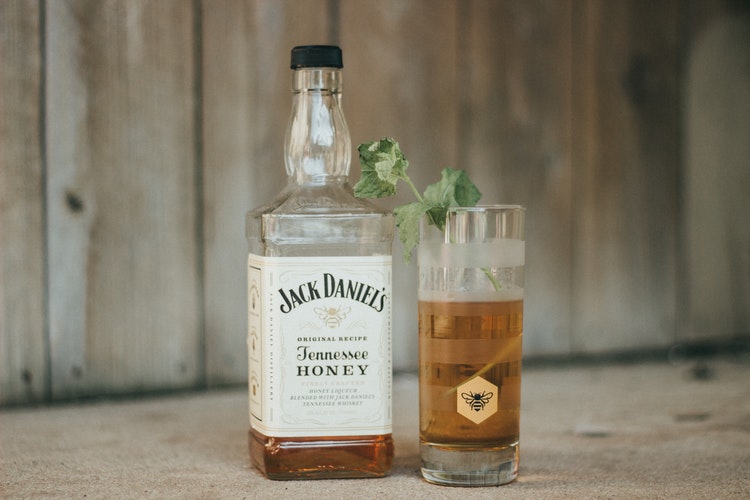English Idioms
English idioms and slang are common features of everyday English. Learning a few slang phrases and English idioms will help you integrate into the UK culture and make you sound more like a native!
Here is a list of common idioms in the English language. See also our sections on phrasal verbs for idiomatic usage and Cockney Rhyming Slang for more expressions, some lesser known, that have seeped into the language from their East London beginnings.
English idioms and idiomatic expressions
A piece of cake – very easy
To add fuel to the fire – to intensify a bad situation
A steal – very good value, at low cost
To have an ace/trick up your sleeve – a secret that will give you an advantage
A bit much – too excessive
To wash your hands of something – to disassociate yourself from something or someone
To have cold feet – to lose the courage to do something
All over the shop – very disorganised
At sixes and sevens – very disorganised
To be in the doghouse – when someone is annoyed with you because you have done something wrong

Bread and butter – everyday, usual event / means of earning money
All skin and bone – very thin, unhealthily skinny
White lie – a small lie told usually to protect someone’s feelings
All square / square – everyone is equal, no one has an advantage over anyone else
All the rage – very popular
Ill at ease – to be uncomfortable about something
An old flame – an old romantic attachment usually of whom you are still fond
Apple of your eye – someone who is very special to you
Around the clock – 24 hours a day
Catch 22 – a situation which has no resolution, all possible outcomes are bad
To be at loose end – to have spare time but nothing to do
To be at your wit’s end – exasperated because you don’t know what to do about a situation
Clean sheet – to not concede any goals (in football)
Clean slate – not taking past issues into account
In a pickle – in trouble
At the drop of a hat – spontaneously, immediately
Vicious circle – a situation where one bad event causes another bad event sequentially
Crocodile tears – to pretend to be upset by something

By the skin of your teeth – only just managed to do something, very nearly failed
To have an axe to grind – To have a grievance
A bad apple – a person who is bad who is affecting othersTo have a bone to pick (with someone) – To have a grievance with someone
Black sheep – a person who is the odd one out due to bad behaviour, the outcast
To come clean – to admit to something
To bad-mouth someone – to say bad things about someone behind their back
(to do something) Behind someone’s back – to do or say something (usually negative) without the other person knowing
(someone doesn’t) Bat an eyelid – to not notice / show any emotion about a situation
In the clear – not suspected
To walk on eggshells – to be careful what you say to someone because they get offended very easily
To have the upper hand – to have the advantge
Top dog – the most important/influential person
Waiting with bated breath – waiting for something expectantly in an excited, impatient state
The bees knees – the best
Dark horse – a mysterious person usually with something to hide
To have a cross to bear – to have a burden or heavy responsibility
Pig headed – to be obstinate
Behind bars – in prison
Salad days – a happy time in your life (this phrase originally comes from Shakespeare’s Anthony and Cleopatra)
Two faced – a person who is untrustworthy, saying one thing to your face and another behind your back
To take into account – to make allowances for, to consider something from the past in the current situation
Itchy feet – to want to move, to travel
To keep something under your hat – to keep it a secret
To play devil’s advocate – to argue a point you may not believe in just to sustain an argument
Better safe than sorry – better prepare with caution now rather than take a risk
Cliffhanger – an exciting event where you don’t know what will happen next (for example, at the end of a television programme)
Fly in the ointment – the one negative thing that spoils the whole
To get your just deserts – to get what you deserve
Big picture – the wider context, the overall situation
To do a runner – to run away from something
To be tickled pink – very pleased about something
Green fingered – good at gardening
To be hard up – to have little money
Pain in the neck – a nuisance
Spot on – exactly right, perfect
To be skint/brassic – to have no money
Sling your hook – (telling someone to) go away
To swing the lead – to get out of going somewhere (usually to work) by pretending to be ill
Dutch courage – confidence felt from drinking alcohol

Red herring – a false piece of evidence to distract from the real situation
On the cards – a definite possibility and probably going to happen
To lose face – to lose reputation, to look bad to others
To have egg on your face – you are made to look stupid (to be)
Over the moon – delighted
Bite the bullet – to face up to what cannot be avoided
Mad as a hatter – a crazy person
Off hand – without preparation
To skate on thin ice – take a big risk
(to be) Off hand (with someone) – to be impolite to someone or curt with someone
To do a double take – to take a second look at something
To rock the boat – to cause trouble
To smell a rat – to suspect that something is wrong/a lie
To fine tune something – to make small alterations to get something right/better
To lose your temper – to get angry
To fly off the handle – to get angry
To see red – to get angry
Gone to pot – gone wrong
Poker face – showing no emotion
(to take something with) A pinch of salt – not to fully believe what someone says
Night owl – someone who likes to go to bed late
Early bird – someone who likes to likes to get up early in the morning
Spineless – no courage
(to be) Quids in – something will make you lot of money
Old hat – old fashioned
To make the most of a situation – to enjoy a situation to the fullest extent
Phrasal Verbs
There are lots of common idioms and collocations in English, often constructed using phrasal verbs. This is when a verb is used alongside a preposition to create an expression entirely new. Explore our list of common English phrasal verbs.
Cockney Rhyming Slang
The East End of London developed its own secret slang language in the mid 1800s. This Cockney code grew popular and spread to other parts of the country and is still used today in various forms. For a discussion of Cockney Rhyming Slang and examples of the expressions in context, please visit our rhyming slang page.
Using English idioms and slang correctly is a great way to sound like a native English speaker.
Share your thoughts on English slang and idioms
What are your favourite English idioms and slang expressions?
Are there are slang expressions you don’t understand?
Have you ever had a funny misunderstanding related to using slang?
Let us know your thoughts in the comments!

correct spelling for “ka ching?” :Ca ching?”
Hi Ann,
Thanks for your interesting question. Oxford Dictionaries spells the word ‘ka-ching’ (http://www.oxforddictionaries.com/definition/english/ka-ching) and gives the alternative spelling ‘ker-ching’. It also explains that the word is onomatopoeic as it mimics the sound of a cash register.
There is an online casino called Kerching, though some may argue that ‘Kerching’ without a hyphen looks more like a verb.
I think your suggestion of ‘ca ching’ would also be acceptable, though ‘ka ching’ (or ‘ka-ching’) appears to be more common. Another less common US variant is ‘cha-ching’.
Have any readers heard of other spellings? Let us know in the comments 🙂
Best wishes,
Catherine
Banking English